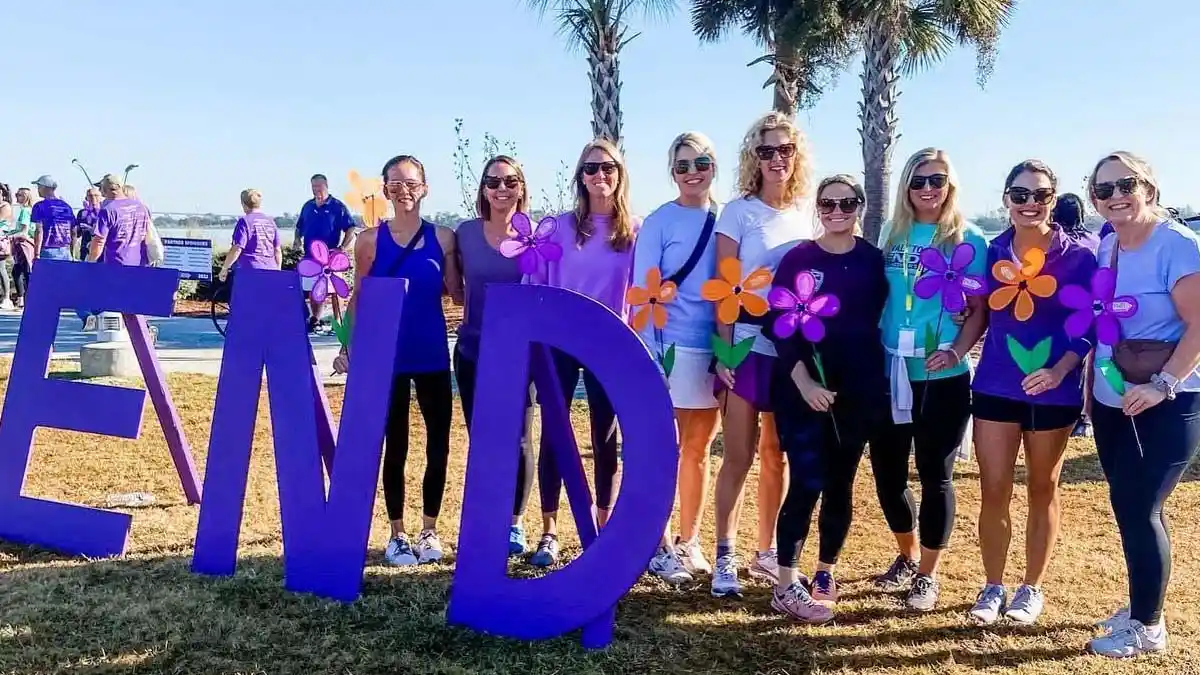On July 6, the U.S. Food and Drug Administration granted traditional approval of Leqembi for the treatment of early Alzheimer’s disease, signifying a new era of treatment for individuals diagnosed with the disease.
“This is the first traditional approval of an Alzheimer’s treatment that changes the underlying course of the disease by slowing its progression,” explained Beth Sulkowski, vice president of communications for the South Carolina chapter of the Alzheimer’s Association.
“This is the first treatment that allows people to extend the good times,” Sulkowski added. “Individuals could have more time to live independently, to drive, to take care of their family finances. Every day is really important.”
Leqembi works by targeting amyloid beta, the primary component of amyloid plaques, which are a disease-defining hallmark in the brains of people with Alzheimer’s disease, according to the Alzheimer Association’s website. Well-conducted clinical trials clearly demonstrate that removing amyloid from the brain provides measurable, meaningful benefit in people with early Alzheimer’s. In a Phase 3 clinical trial, Leqembi delayed cognitive decline by 5.3 months compared to a placebo after 18 months of treatment, at a time when such delays are most valuable to the individual. Further delays in progression are anticipated with extended time under treatment.
Leqembi has been on the market since January 2023, when it received accelerated approval from the FDA. The federal agency’s traditional approval of Leqembi means its use will be covered by Medicare.
Because the medication is administered twice monthly through intravenous infusion, Sulkowski emphasized the importance of early and timely diagnosis in order for individuals to have the opportunity to explore and choose the treatment.
“Our diagnostic efforts are going to have to go hand-and-hand with this treatment,” explained Sulkowski. “Early detection and early diagnosis become even more critical so that affected individuals can receive treatment at the earliest point possible.”
For those for which the disease has progressed beyond its early stages, the Alzheimer’s Association remains an indispensable resource.
“It is a priority for us to maintain support services for those who don’t qualify for the new treatment,” said Sulkowski. “In the immediate term, the bulk of families and caretakers are in the intense years of caregiving.”
The Alzheimer’s Association plays a crucial role in raising awareness, supporting affected individuals and their families and funding critical research. The organization’s support services, operated by trained volunteers, range from educational programs and workshops to biweekly support groups. The organization even provides peer-to-peer services that connect individuals with early stage dementia to one another. There are a number of support groups that meet in Charleston, specifically through Respite Care Charleston.
The Alzheimer’s Association also offers a 24/7 help line, which connects those in need with trained masters-level social workers and has proven to be a critical resource.
“Questions range from, ‘What are the warning signs?’ to ‘I’m caregiving now and I’m at the end of my rope – what do I do?’” Sulkowski explained.
The help line provides much-needed guidance when it comes to locating community resources, learning to communicate as a caregiver and much more.
Currently, the South Carolina chapter of the Alzheimer’s Association is busy preparing for its annual Walk to End Alzheimer’s, hosted this year at the Joseph P. Riley Jr. Park in Charleston on Oct. 28.
“Our walk is all about fighting for a different future,” said Sulkowski.
Held every year in more than 600 communities nationwide, the two-mile Walk to End Alzheimer’s is an opportunity for people of all ages and abilities to help advance the cause.
“There is something that everyone can do to get involved,” Sulkowski stated. “You can join a planning committee or be a day-of volunteer. Registration is free. We are driven by donor dollars, so you can set a goal and begin fundraising today.”
“You can even get involved by telling your story,” she added. “Share it with the Alzheimer’s Association. Share it with your state-level policymakers to help support our advocacy work.”
For more information about registering for the walk, volunteer opportunities, the 24/7 help line or the Leqembi approval: visit alz.org/sc/volunteer or
alz.org/news/2023/lecanemab-leqembi-traditional-fda-approval-full. The number to call to reach the help line is 800-272-3900.
By Catherine Kauffman







